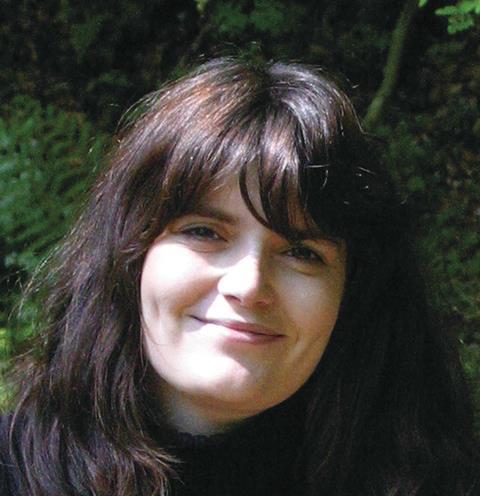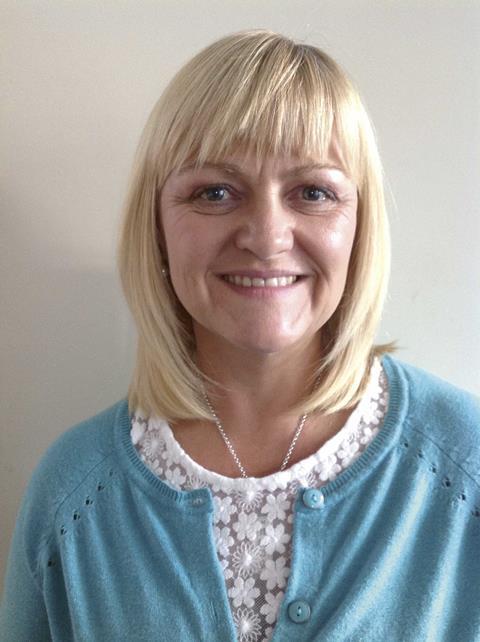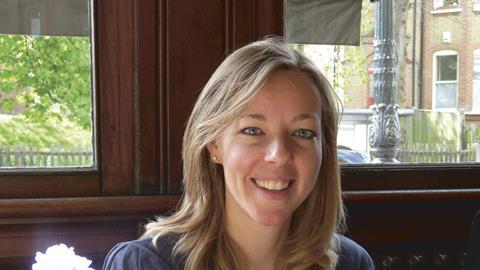Grania Langdon-Down hears from practitioners who have reshaped their career by moving practice area.
Switching practice area is not for the faint-hearted whether it is forced on you by redundancy, a career break or changing personal circumstances; or driven by passion, boredom or desire for a new challenge.
But, whatever the driving force for the change, it is possible with careful planning to reshape your career.
It is important to be positive about the opportunities – 40 years might seem too long to spend being unhappy at work – but it is equally important not to underestimate the impact of the current economic climate.
In a tough recruitment market, employers will be quick to sniff out a ‘respray’ unless they can see real commitment behind the move.
Alison Pendleton, business director in legal recruiters Hays’ private practice division, is blunt. While the market has picked up over the last six months – particularly in corporate, banking, financial services and regulatory – competition for jobs means employers can wait for the perfect candidate with the right experience.
She points to commercial property as an example. ‘We have more roles in that area than we have had for the last five years,’ she says. ‘But firms will wait and juggle work internally or take on a locum if they are desperate until they find the right permanent person. Our locum and contract division is busier than it’s ever been.’
While smaller firms may be more flexible, her experience is that bigger firms are not willing to train someone into a different area, preferring to look overseas for people with a proven track record if they cannot find the right calibre of applicant here.
The main exception is newly qualifieds, who have a window of about six to 12 months to change to one of their other training seats or try something new – a ‘scary’ thought for junior lawyers, she acknowledges.
Pendleton says Hays advises practitioners to contact firms directly, pointing out: ‘Why would a firm pay us to place someone with them who they will then have to spend money on training up?’
What is important is to make sure you are moving for the right reasons as the grass on the other side is not always greener.
Former solicitor Tessa Armstrong is now a career and performance coach. She mainly sees people who, two or three years down the line, are wishing they had done something else.
‘I help them build their self-awareness – what are they good at, what do they want from their working environment, what motivates them – so they understand what they enjoy and how that matches with their current role,’ she explains.
‘The key is to identify why you aren’t enjoying your job. It is often a performance issue rather than the area of law, and moving specialism may just mask the underlying problem.’
Tough questions
A new book published today Career Planning for Solicitors (editor: Sue Lenkowski, Law Society Publishing, £19.95) includes practical advice on changing specialism.
It recommends asking yourself some tough questions: what will a change mean in terms of family commitments, location, finance? Can you afford to take time out, a cut in pay, the cost of training, or moving?
Other suggestions include talking to recruiters who can help you identify growth areas to target, the skills employers will want and salary ranges. Networking is key to building up an understanding of your chosen area, so it is recommended you:
- find a mentor in that field;
- call on friends and business contacts;
- attend client seminars and webinars;
- go to trade events;
- join trade associations and special interest groups;
- take advantage of any courses;
- use social media sites.
Consider what other training you can do – from self-study to gaining certificates which give credibility to your CV – and see if you can shadow someone.
Rita Oscar is the Law Society’s product manager with responsibility for career development. She says the Society developed retraining seminars in 2009. The first seminar on wills, probate and trusts was a sellout with a waiting list of over 80 and the Society expanded them to include employment and civil litigation. But as the market has improved, attendance has dropped. The Society did not run any retraining sessions this year but has responded to feedback to put on a two-day course on family law next spring.
Training budgets are certainly tight, says CLT’s development director Lucy Morrison, but CLT’s ‘branch-out’ retraining courses are ‘bucking the trend’ with interest mainly from practitioners working in crime, family and personal injury looking to switch to employment or private client.
Most courses last one or two days. The private client conversion course runs to four days and costs between £1,000 and £1,500. Morrison says CLT is looking at lengthening courses so people will be ready to pick up and run with a file on their own. But pricing will be an issue, she acknowledges, as CLT hopes to attract more people who are self-funding. Most are sent by their firms who want to develop new areas that are more resistant to change such as employment.
Conscious that some practitioners want to move in-house, she has introduced a two-day certificate in commercial contract drafting as well as courses with a contentious background to help personal injury lawyers whose work is drying up. ‘Lawyers have very good transferable skills and they are generally bright people,’ she says. ‘They just need the confidence that knowledge brings to start building up a new practice.’
Ensuring practitioners have the right skills is vital in a changing legal market. With pockets of high deprivation, Wales was hit badly by the legal aid cuts but there is also a buzz being created by more Wales-only legislation and the growth in the biosciences, IT and film, TV and media sectors.
The Welsh government has been working with the five law schools in Wales and other stakeholders, such as the Law Society, to identify new opportunities for practitioners. Developments include a new MSc in arbitration at the University of South Wales.
Heather Iqbal-Rayner, chair of the Junior Lawyers Division, welcomes the moves. She was forced to change direction when her welfare benefits practice in Swansea dried up. She had done earlier work in housing but still found it hard to break into, because the job market was so competitive and she did not have any current experience on her CV.

It is daunting. I cut out recruiters and approached firms directly, doing my own studying to get up to date so I could answer any questions put to me
Heather Iqbal-Rayner, chair of the Junior Lawyers Division
However, she recently joined the housing team in Duncan Lewis’s new Cardiff office after working for the firm for five months as a consultant. ‘Changing specialism requires a lot of time and energy and it is daunting,’ she says. ‘I cut out recruiters and approached firms directly, doing my own studying to get up to date so I could answer any questions put to me.’
Through the JLD she has a network of people to ask for advice. ‘It can be difficult without connections,’ she accepts. ‘But practitioners know how hard it is so people are willing to help if you ask.’
Another option is to use social media, she says. Some people have put stories on Twitter saying they have been made redundant and have had job offers on the back of the thread. But she warns: ‘Make sure you have the right privacy settings if you are also using it socially.’
The opportunities to reinvent yourself are there but, like Iqbal-Rayner, those who have made the jump do not underplay the effort involved.
Tineke Harris (pictured, top) is currently on maternity leave from her part-time role as director of the death penalty team at Reprieve. She trained at Baker & McKenzie, qualifying in EC competition law. ‘As a junior associate, you gradually realise what it will take to stay on that career path and I started questioning whether this was the life I wanted.’
She saved up and negotiated a one-year sabbatical so she could volunteer with IJM (the International Justice Mission) in India. ‘I knew I had to do it then when I was single and without commitments,’ she says. ‘While it was a radical move, it didn’t feel it because I had the option of going back. But I loved the work and was offered a paid job so I never did go back.’
People can feel very trapped in their specialist area. But Harris says: ‘I don’t think it has to be set in stone. I had to work for free to start with so I am not saying it is easy, but it can be done. The work is stressful and intense and I don’t think I work any less hard than when I was at Baker & McKenzie but I really like my life right now.’
Ben Leach worked as a commercial property solicitor with Addleshaw Goddard in Manchester for three years before taking time out during the recession to teach English as a foreign language. He then joined Kent solicitors Parry Law as a commercial property assistant. After nine months, the firm asked him to join the private client department and he did the CLT four-day conversion course.
‘There was a lot to take in because it is very comprehensive,’ he says, ‘but I really enjoy the work and it fits my personality as you need to be sensitive in dealing with elderly clients.’
He is moving to a firm near Manchester later this year where he will combine private client with some property work, adding: ‘It is appealing to have another skill set so you aren’t completely dependent on one area for work.’
Jackie Carslaw is looking to return to law after a long career break. She started her career in matrimonial and civil litigation before moving in-house to a local council doing planning, landlord and tenant, and commercial work. ‘I learnt on the job,’ she recalls. ‘They were more concerned with getting the right person who would fit into the team rather than the knowledge you had.’

They were more concerned with getting the right person who would fit into the team rather than the knowledge you had
Jackie Carslaw
In 1997, she decided to take a break to look after her children. She kept busy, running a direct sales business selling kitchen equipment, which has added commercial awareness, and sales and business development skills to her CV. When she decided two years ago to return to law, she talked to former colleagues and looked at job adverts to see which areas were recruiting.
Private client stood out so she did some sums and went on the CLT conversion course. ‘It made me realise I still knew an awful lot while providing a very good, intensive grounding in all the relevant areas,’ she says.
It also gave her the confidence to job hunt in earnest. She has had some interviews – one was for a non-solicitor role and the firm felt she would outgrow it too quickly, while another needed someone experienced who could take over an existing caseload.
She has become cynical about the approach of some recruiters and has drawn up her own shortlist of firms to target. ‘They make assumptions about you which you can’t counter,’ she says, ‘so I have started approaching firms directly. It is difficult to keep up your confidence but the key is to be adaptable and don’t give up.’
After being at Eversheds ‘man and boy’, partner Kevin Doolan retires next year to start a new career as an academic and a consultant advising professional services firms on leadership and strategy.
He spent 20 years advising some of the largest multinational companies before doing an MBA and moving into law firm management. Three years ago he decided he wanted to do something different and ‘networked’ his way into academia, lecturing at the London School of Economics, the IE Business School in Madrid and becoming a visiting professor at Harvard.
‘There is a real desire in universities and on academic courses,’ he says, ‘to have people who have worked at the coal face, either as an expert in their field or, if you have been involved in the management of your firm or team, covering a broader role.’
Jason Hadden was a solicitor in family and civil litigation. He qualified as a solicitor-advocate and did some work as a trainer before becoming a barrister.
‘With some jobs you struggle after about 10 years to keep doing the same thing because it can become mundane,’ he says.
‘Changing direction is harder to do later in your career but don’t let age stop you. I meet lots of solicitors who say they hate their job so take a chance and apply for that crazy job. You will lose nothing if you don’t get it – but you just might.’
































No comments yet